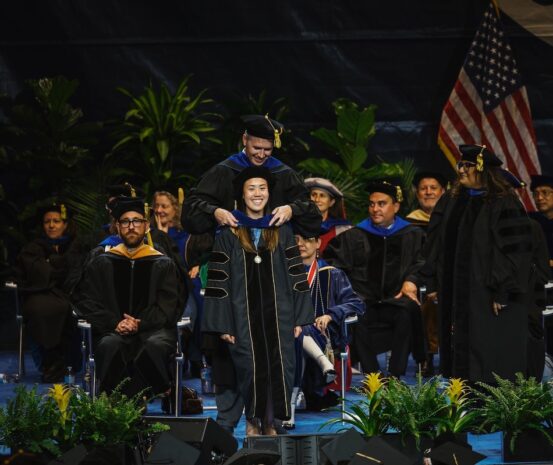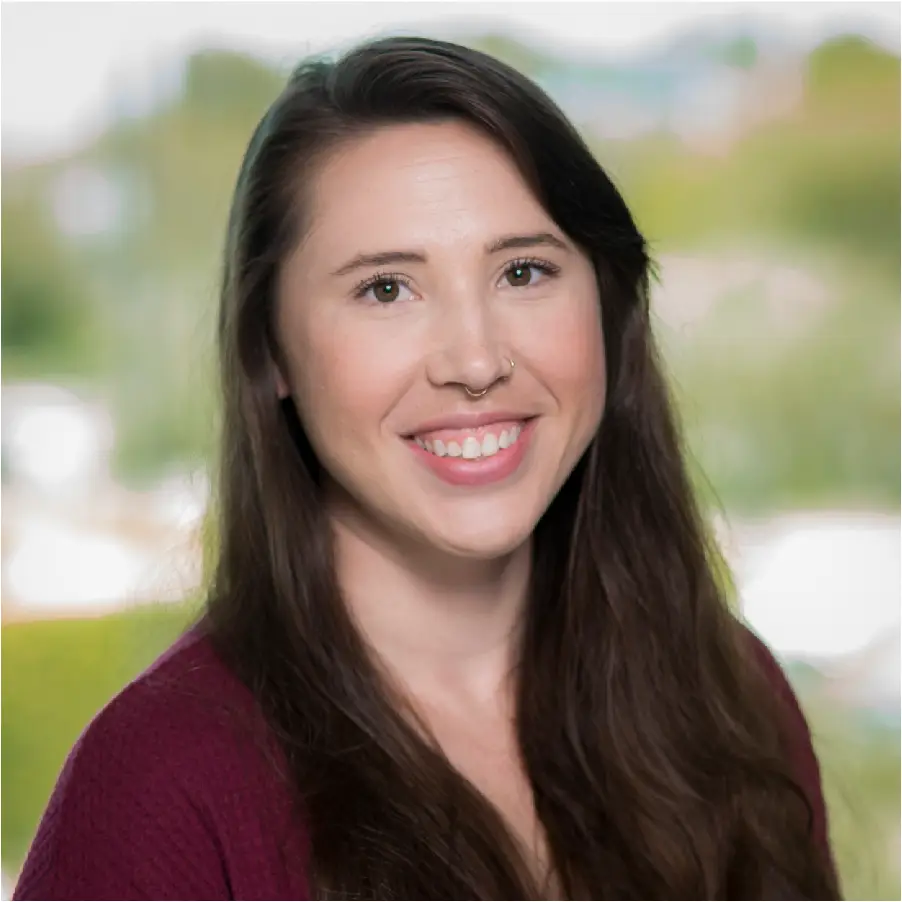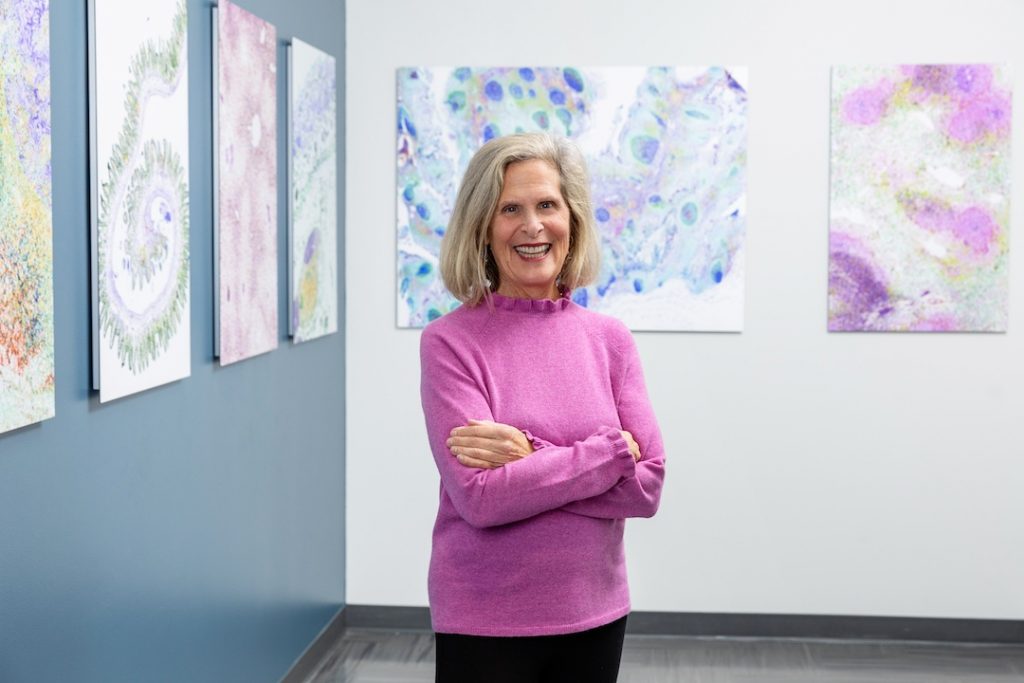Ivy Phung’s family knew she loved science from an early age. As a high schooler in the Bay Area, Phung got up early every day for a hands-on science elective class held during “zero period,” before the school day officially started. There she practiced wet lab skills, such as pipetting, that most students don’t get to learn until they get to college.
Phung briefly considered going to med school, but she found that she loved bench work—the process of designing experiments, working with interesting samples, and collecting data. A college internship with pharmaceutical company AbbVie gave her the opportunity to apply those technical skills to study antibody-based drug candidates.
“I really liked science because of the skill set,” says Phung, “But as I’ve gotten older and have matured as a scientist, I’ve found I really like investigating interesting questions. I like looking more deeply into ways to improve human health and see the translational aspects of lab work.”
Phung’s love of science led her to enroll in the UC San Diego graduate program, where she found a place in the La Jolla Institute for Immunology (LJI) lab of Professor Shane Crotty, Ph.D.
As a Ph.D. student in the Crotty Lab, Phung became part of a team known for conducting especially demanding, highly regarded research. Yet, despite the intensity of the work, Phung felt welcomed and supported by Crotty. “He was really nice. We met regularly to talk about my data. He was a very present P.I. [Principal Investigator], and he continues to be present as a mentor now.”
By joining the Crotty Lab, Phung also stepped into the world of HIV vaccine research. Scientists have been trying to develop an HIV vaccine since the 1980s, but the virus has proven particularly hard to beat. Among the many challenges are the facts that HIV mutates rapidly (thwarting efforts to get immune cells to recognize it), HIV uses a special molecular shield to hide from immune cells, and HIV depletes the very immune cells that would help defend the body.
Fortunately, the Crotty Lab has uncovered promising ways to boost the immune system’s fighting power against HIV. One strategy is through the clever use of adjuvants, which are molecules added to a vaccine. “Adjuvants are an important part of a vaccine because they help enhance the immune response,” says Phung.
Adjuvants help grab the immune system’s attention. A vaccine also contains information from a virus, such as a piece of its molecular structure. An adjuvant helps raise the alarms and prompts immune cells to prepare their defenses against any future appearances from that molecular structure. For a long time, a chemical compound called alum was the go-to adjuvant in vaccine design, but recent research from the Crotty Lab and experts at Massachusetts Institute of Technology (MIT) suggest several new molecules might work even better as adjuvants.
For her Ph.D. project, Phung investigated how potential new adjuvants might improve HIV vaccines. She worked closely with MIT scientists, who tested new adjuvants in non-human primates. The MIT researchers would immunize the primates, and then Phung would receive cell samples from the animals’ lymph nodes.
Working with primates is expensive, and every sample was precious. “All the cells from one animal are stored in one vial. Once you thaw that vial, they’re gone,” says Phung. “It was super nerve-wracking. Imagine starting out as a grad student and having to do those types of experiments. I’ve learned to be very careful and meticulous about the work.”
Phung collaborated with experts in the LJI Flow Cytometry Core to isolate B cells from the immunized animals. B cells are part of the body’s “adaptive” immune system, which means they gear their attacks toward specific threats, such as individual viruses. B cells fight threats by churning out antibodies that can bind to—and hopefully neutralize—a pathogen. By isolating and then sequencing B cells from the animal models, Phung could see exactly how those cells were targeting HIV.

Through these experiments, Phung shed light on which new adjuvants may help the immune system produce powerful HIV-fighting antibodies. She was also involved in a collaboration with the Schief Lab at Scripps Research to study how B cells respond to an engineered antigen—an artificial piece of HIV’s structure. The team studied how exposure to this antigen could lead B cells to mutate and produce effective antibodies against many clades and strains of HIV.
All this work came at a strange time to be an immunologist. Phung began her Ph.D. work in the summer of 2019, so she saw how public interest in vaccine research shifted over the course of the COVID-19 pandemic. “When I tell people, ‘Oh, I work in vaccine development,’ a lot of people will tell me how that’s super important, especially now. This kind of work is really being recognized,” says Phung. “It does feel more rewarding.”
With her Ph.D. work complete, Phung is now the first member of her family to earn an advanced degree. She’s staying on as a postdoctoral researcher at LJI as she helps prepare her work on adjuvants and antibody development for scientific publication.
Phung’s relatives have been cheering for her all along the way. In June, her extended family traveled down from the Bay Area to attend her commencement ceremony (her sister was also graduating from UC San Diego at the time). Her parents and her four aunts, uncles, and their families all watched as Phung crossed the stage, and they gathered to meet Crotty after the ceremony.
It was a bit weird to see her family and her research worlds collide, says Phung. “They all met Shane, and my mom said something like ‘Oh, I hope Ivy didn’t cause you any trouble!’ We were all smiling though. It was really special.”




